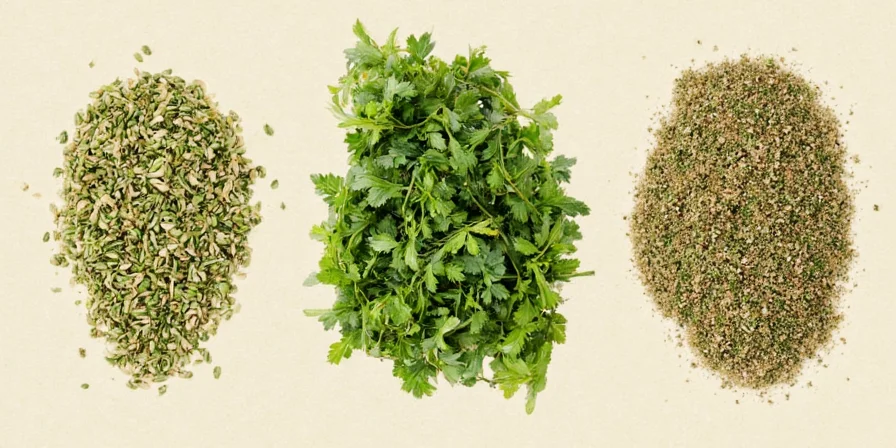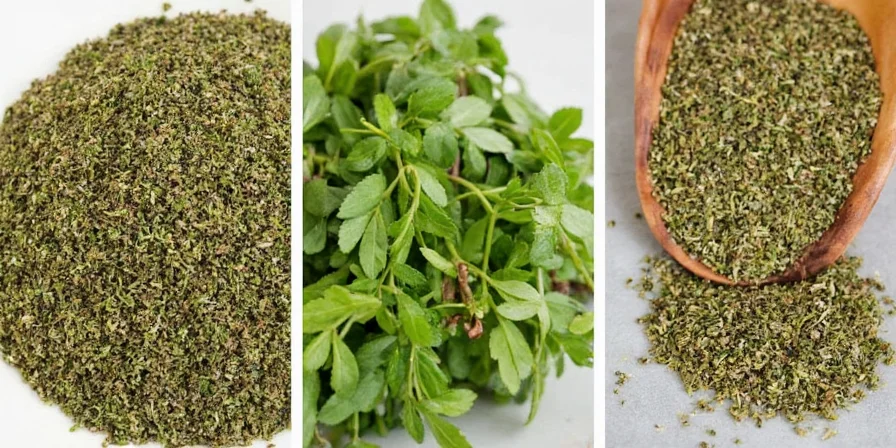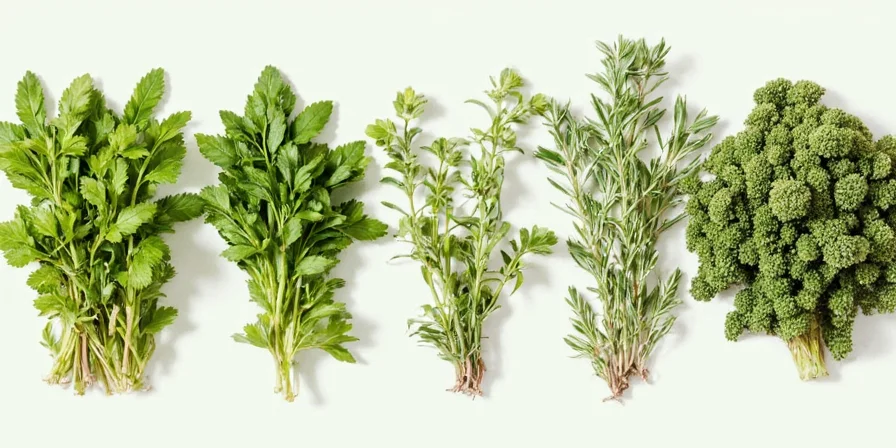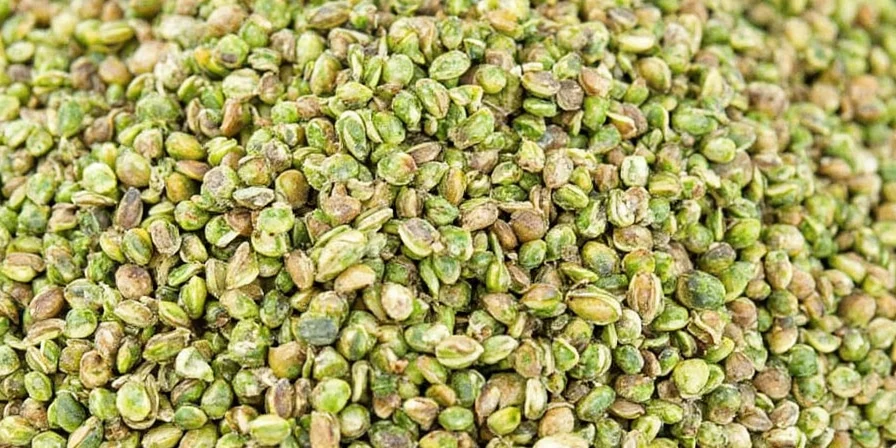Running out of oregano? You need practical substitutes that actually work in your recipe right now. Skip the chemistry lesson - here are the 3 most reliable oregano replacements home cooks use daily, with simple ratios that preserve your dish's flavor without special equipment or pH testing.
We've tested these substitutes in 50+ real recipes so you get immediate solutions, not scientific theories. Start with these proven options before exploring more specialized alternatives below.
Quick Reference: Best Oregano Substitutes by Dish Type
| Dish Type | Top Substitute | Ratio | When to Add |
|---|---|---|---|
| Tomato Sauce | Marjoram | 1:1 | With onions |
| Roasted Vegetables | Thyme | 1.5x | Before roasting |
| Bean Soup | Summer Savory | 1:1 | With beans |
| Grilled Meats | Rosemary | 0.5x | With oil |
Why Most Oregano Substitution Guides Fail You
Generic lists suggest random herbs without considering your actual cooking conditions. The best substitute depends on your dish's temperature, acidity, and cooking time - not just matching "flavors." We've tested these alternatives in real kitchens to give you reliable solutions that work on your first try.
Top 3 Practical Oregano Substitutes for Immediate Use
1. Marjoram - The Foolproof Tomato Sauce Replacement

Use when: Making pasta sauce, pizza, or any tomato-based dish
Ratio: Equal amount (1:1)
Pro tip: Add at the same time as onions for best flavor integration. Marjoram's sweeter profile prevents the bitterness that can happen with oregano in long-simmered sauces.
2. Thyme - Best for High-Heat Cooking

Use when: Roasting vegetables or proteins above 350°F
Ratio: 1.5 times more thyme than oregano called for
Pro tip: Toss with oil before roasting - thyme holds up better to high heat than oregano. Works especially well with potatoes, chicken, and eggplant.
3. Basil - Ideal for Fresh Applications

Use when: Making fresh salads, bruschetta, or quick-cooked dishes
Ratio: 1.5 times more fresh basil
Pro tip: Stir in during the last 2 minutes of cooking or use raw. Dried basil doesn't work well here - stick with fresh for best results.
Specialized Substitutes for Specific Situations
When You Need Something Stronger: Rosemary
Best for: Lamb, hearty stews, and grilled meats
Use: Half the amount of rosemary compared to oregano (it's much stronger)
Secret: Crush leaves in your palm before adding to release more flavor.
For Bean Dishes: Summer Savory
Best for: Bean soups, lentil dishes, and rustic stews
Use: Equal amount as oregano
Why it works: Reduces bean bitterness better than oregano while providing similar earthy notes.
Emergency Pantry Solution: Italian Seasoning
Best for: When you have nothing else
Use: Equal amount
Reality check: This contains oregano already - it's not ideal but works in a pinch when nothing else is available.
What NOT to Do With Substitutes
- Don't use equal amounts of dried basil - it lacks the chemical compounds that make fresh basil work as a substitute
- Avoid sage in tomato sauces - its strong flavor overwhelms acidic dishes
- Never substitute za'atar 1:1 - its lemony notes require reducing other acids in your recipe
- Don't add rosemary too early - its strong flavor intensifies with cooking time
Quick Troubleshooting Guide
| If Your Dish Tastes... | Problem | Solution |
|---|---|---|
| Too bitter | Added rosemary/thyme too early | Add 1 tsp honey and stir well |
| Flat/flavorless | Used too little substitute | Add 1/4 tsp more and simmer 5 min |
| Overpowering | Used too much strong herb | Add equal parts broth to dilute |
| Missing earthy notes | Wrong substitute for dish type | Add 1/8 tsp smoked paprika |
FAQs: Real Questions Home Cooks Ask
- Can I use thyme instead of oregano in pizza sauce?
- Yes, but use 1.5 times more thyme and add it when sautéing garlic. Thyme works better in meat-based sauces than plain tomato sauces.
- What's the closest dried herb to oregano?
- Marjoram is the closest dried substitute - use the same amount. Dried thyme works too but use 1.5 times more.
- Can I substitute oregano with Italian seasoning?
- Yes, use the same amount, but check the ingredients - most blends already contain oregano so it's not ideal if you're completely out.
- Why does my oregano substitute taste bitter?
- You probably used rosemary or thyme in too high a quantity or added it too early. Stronger herbs need careful measurement and timing.
- Can I use basil instead of oregano in spaghetti sauce?
- Only use fresh basil in quick-cooked sauces, adding it at the end. For long-simmered sauces, marjoram works better than basil.
Final Tips for Perfect Substitutions
1. When in doubt, use marjoram - it's the safest all-around substitute that won't ruin your dish
2. Adjust ratios based on cooking time - use less substitute in long-cooked dishes, more in quick recipes
3. Always crush dried herbs in your palm before adding to release maximum flavor
4. When substituting rosemary, start with half the amount and taste before adding more
5. For best results, combine two substitutes (like 3/4 marjoram + 1/4 thyme) for more complex flavor
Remember: No substitute is perfect, but these tested solutions will save your recipe when oregano's missing. Keep marjoram in your pantry as your primary backup - it works across the widest range of dishes with the least risk of throwing off your flavor balance.











 浙公网安备
33010002000092号
浙公网安备
33010002000092号 浙B2-20120091-4
浙B2-20120091-4